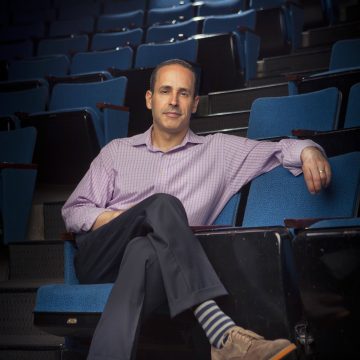PLAY
Shloyme Molkho
[Solomon Molcho]Synopsis
Scene 1. In the palace of Portuguese king João III, the king’s confessor, Cardinal Salvador, welcomes Diogo Pires. Pires expresses his dissatisfaction with Christianity, and his desire to return to his Jewish roots, and asks if Salvador would like to join him. Salvador isn’t sure the Jews are any better than the Christians, and suggests that Pires could do more good for Marranos by staying in his current high position in the Portuguese court.
Scene 2. The entrance to the Portuguese royal palace. A group of nobles presses Salvador for information about João’s latest exploits. Diogo arrives, and is clearly popular with the women—and the object of jealousy among at least some of the men. João and Queen Katerina emerge. The king voices his concern that infidels control the Holy Land, and the queen suggests bringing the Inquisition to Portugal, but Salvador replies that the Pope wouldn’t like it. João then announces a different kind of venture: a Jewish army led by Dovid Ruveyni will help Portugal retake the Holy Land.
Scene 3. Dovid Ruveyni’s lodgings in Lisbon. Diogo has gone to him before, and felt that Ruveyni paid him little heed because he was a Christian. Now he announces that he has converted, and bears the name Shloyme Molkho. Ruveyni, neither pleased nor angered by the news, tells Molkho to leave Portugal as soon as possible, and Molkho agrees.
Scene 4. The city of Safed, in northern Palestine. At a gathering in his synagogue, the kabbalist Joseph Caro sings the praises of Shloyme Molkho, and others describe Molkho’s exploits in various countries. Molkho arrives, and is greeted ecstatically. In a long monologue, he wonders whether he is in fact God’s chosen one.
Scene 5. Shlomo tells his wife Dvoyre that they must separate, since he must rid himself of all bodily impurity. She pleads with him, and he says she’ll need to wait for him.
Scene 6. In Rome. Clashes between enemies of Molkho, led by Jacob Mantino, and supporters, led by the kabbalist Joseph of Orly. Mantino and others say Molkho is a traitor, and will do whatever it takes to stop him. To his own followers, Molkho wonders aloud whether he is in fact a false messiah—whether he’s wrong in thinking he is hearing God’s word. His followers protest, pointing to Ruveyni’s faith in Molkho as a sign to the contrary. Ruveyni himself arrives. Left alone, the two leaders discuss their methods and goals.
Scene 7. Rome, early evening. Molkho prophesies the destruction of Rome, and floods to the north and west. He warns the poor people to repent, and when asked who will be their redeemer, seems to suggest that it might be him. A moment later, though, Mantino enters with priests and soldiers, Molkho is arrested for leading Christians astray. He goes off calmly.
Scene 8. Pope Clement VII’s inner chambers in the Vatican. Molkho prays to God for certainty either that he is for real—in which case he wants to see results—or that he is a false messiah, in which case he wants just to die and be forgotten. Pope Clement enters and expresses his confusion over Molkho’s willingness to make profound sacrifices for a people who have rejected him. He offers to make Molkho a cardinal, but Molkho prepares to leave Rome. Clement, left alone, is heartbroken.
Scene 9. Dovid Ruveyni’s lodgings in Venice. With some difficulty, Molkho talks Ruveyni into going with him to Regensburg to appeal to Emperor Charles to support their plans.
Scene 10. In the emperor’s palace in Regensburg. Charles V discusses with King Ferdinand, Isabella, and other nobles his current predicament, as he faces significant divisions within the Christian world: most notably, the Reformation, Henry VIII’s desire to pull away from Rome, and France’s excessively moderate stance toward the Muslims. Given all these problems, Charles is looking forward to receiving two Jews, Dovid Ruveyni and Shloyme Molkho, to see how they might help. The others are appalled. Charles dismisses those who cannot stomach such a meeting, and summons Ruveyni and Molkho. Ruveyni spells out the plan: if Charles provides them with weapons, Ruveyni’s forces will attack the Turks from one side, Molkho’s from the other. Charles is astonished that Jews, “whose sole weapon is money,” plan to go to war, but Ruveyni says that all he and his fellow Jews want for payment is the Holy Land. Molkho adds that this is a demand, not a negotiable request. While Charles’s aides are outraged at this impudence, he is intrigued, but ultimately concludes that he cannot give in. He orders the two men arrested; Molkho is to be executed, and Ruveyni imprisoned for helping him. But Charles is clearly not entirely happy with this arrangement, and the play ends with him worrying about the consequences of his actions: “Who is the winner here? / Not I: / For I-- / The heart of Pontius Pilate / Was no heavier, darker, / Than mine is now: / And I don’t have the excuse that he did . . .”
